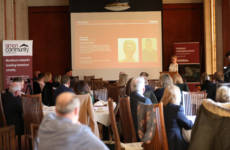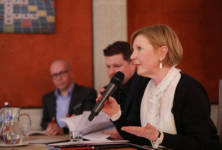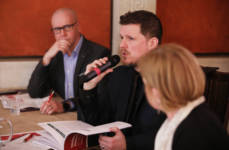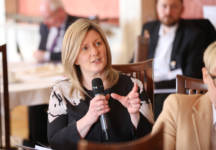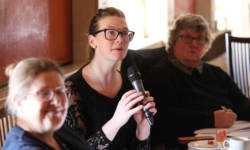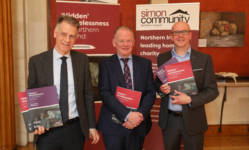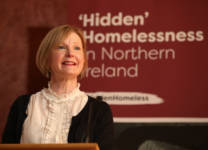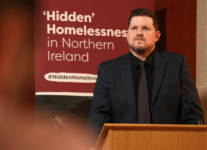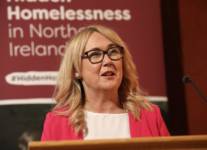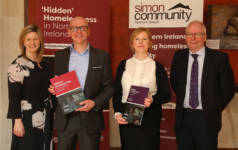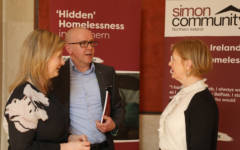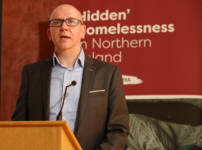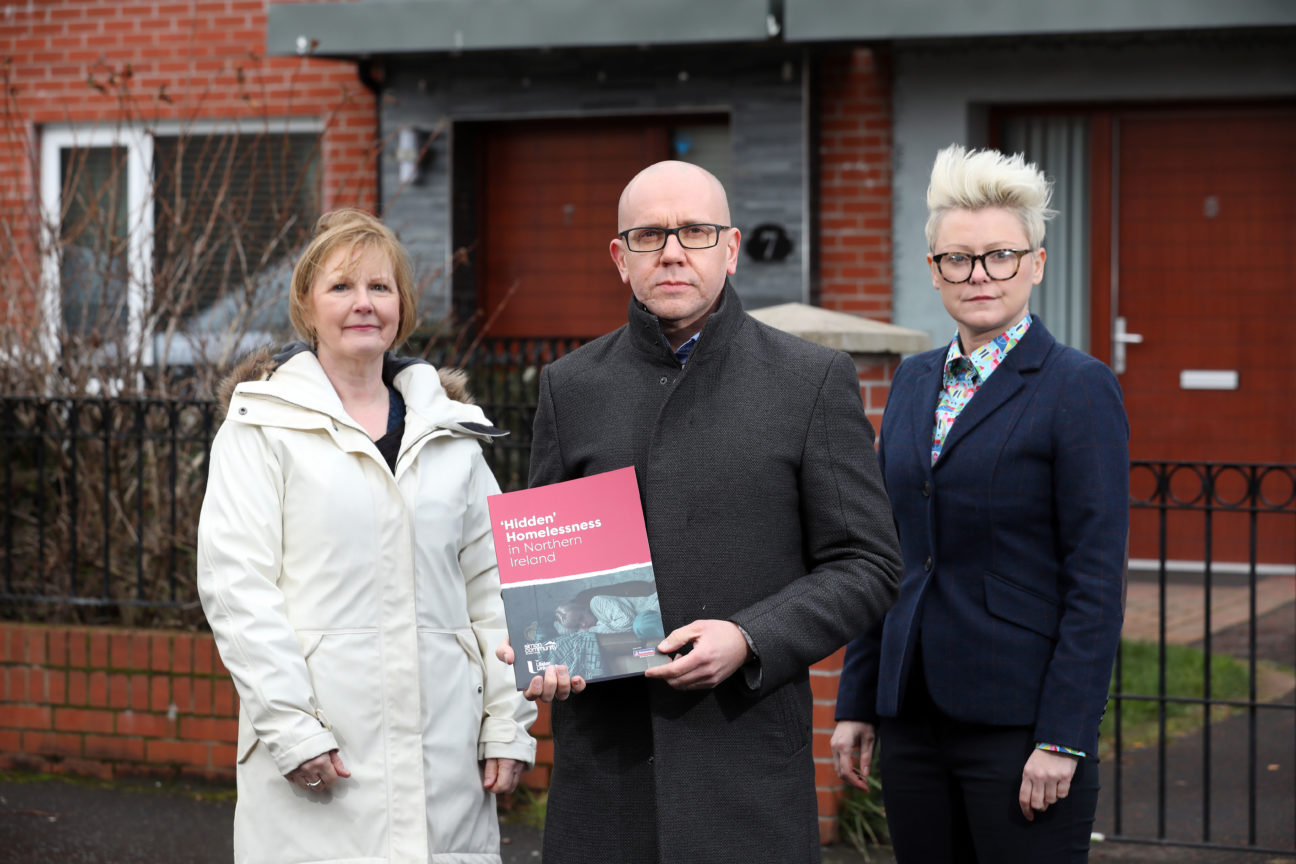
- Pandemic and increased cost of living means this is a growing risk that must be tackled now
- Report discovers this could impact over 110,000 people in Northern Ireland
The impact of the pandemic and the increasing cost of living will push many vulnerable people into poverty and housing crisis. More people are at risk of becoming part of the ‘hidden homeless’ community that has gone largely unreported in Northern Ireland.
These are the stark findings of a new report commissioned by leading homelessness charity Simon Community in partnership with Ulster University and supported by Nationwide Building Society, revealing that ‘hidden homelessness’ could now be affecting more than 110,000 people locally.
Many people who become homeless do not show up in official statistics and are not visible, this is known as ‘hidden homelessness’. Often staying with friends or relatives, ‘sofa surfing’, living in severely overcrowded conditions, squatting, not connected to support services and without a home of their own. Following the impact of the pandemic and with the cost of living and inflation having accelerated to the highest rates in 30 years, this is likely to have a serious impact on many local people who may well be forced from their homes and have to rely on friends or family to provide them with a bed.
This research, which is the first of its kind in Northern Ireland, was carried out by Ulster University and launched at Parliament Buildings, Stormont, sponsored by DUP MLA, Paula Bradley, Sinn Féin MLA, Ciara Ferguson and Alliance MLA Kellie Armstrong.
It examines who is vulnerable to hidden homelessness and why, the barriers and challenges that are faced with regard to seeking and receiving support, the impact of a lack of long-term funding for the sector and the housing supply crisis. The study includes the findings of interviews with a range of voluntary, community, statutory organisations and individuals who share their own experience of hidden homelessness.
This is a complex issue and because it is not overly visible, many people are slipping through the current system undocumented, indicating that the real hidden homeless figure could be much greater.
Findings from the Ulster University report suggest that some groups in society are more vulnerable to becoming part of the hidden homeless population including young people, single people aged over 55, domestic abuse survivors, members of the LGBTQ community and ex-prisoners. They may not present themselves for support for various reasons or be accepted as homeless because the current assessment system in place can only provide accommodation for those who meet specific criteria.
Professor Ann Marie Gray, Professor of Social Policy at Ulster University and Co-Director of ARK led the research and commented:
The research highlights the damaging impacts that hidden homelessness can have on people. Young people are among those who are particularly vulnerable and the earlier that someone experiences hidden homelessness the more likely they are to develop complex needs. Too often, people do not know where to go to for help or find it difficult to navigate the support systems. To support those most in need, more could be done to publicise hidden homelessness and to effectively communicate the existing support that is available and how people can access it. However, it is also clear that existing support is insufficient and there are indications that this is a growing problem.
The research outlines several recommendations for consideration. If implemented these would create more awareness around the issue, reduce stigmatisation, increase housing supply, provide long-term funding solutions, and offer stronger legislation to protect vulnerable and low-income tenants in the rented sector. The research recommendations help detail a pathway to creating a system that is more accessible and provides adequate support for those who are deemed to be hidden homeless.
Simon Community supports over 630 marginalised people each day across Northern Ireland. Its priority is to prevent homelessness with tailored approaches that tackle the issue as well as provide specialist support services for clients.
Jim Dennison, Chief Executive at Simon Community believes that the Ulster University Report is an important first step to finding workable solutions:
We welcome the findings and recommendations from this new report, updating the current legislation to include ‘hidden homelessness’ will be key for homelessness prevention and to help services anticipate current and future need.
There is no doubt that we are currently facing a homelessness crisis. The current barriers within the statutory housing system in Northern Ireland mean that some of the most vulnerable people in society cannot access adequate support to secure accommodation. The effects of homelessness can be devastating, and we know that people who face hidden homelessness for longer periods are much more likely to experience a deterioration in mental and physical health.
We believe that everyone deserves a home, but current demand for housing outstrips supply. The lack of social housing alongside record rent costs in the private rental sector are contributing significantly to homelessness. Improved housing supply will play a key role in breaking this cycle. There needs to be increased investment in social housing and delivery of more affordable housing for all including the private rental sector.
Simon Community currently delivers innovative schemes that are working to prevent and support those facing homelessness. Their Tenancy Sustainment Programme provides financial support to people who are tenancy ready but don’t have the means for a deposit. To date, it has had a high success rate with 98 percent of tenants remaining in their home for more than six months.
Creating Homes was also launched by the charity in late 2021 as a response to the current homelessness crisis. They plan to buy and manage up to 50 homes for people who would otherwise be homeless - six properties have successfully been restored to date.
Dennison continues:
Another result would be the introduction of long-term sustainable funding commitments for local and essential services. Emergency provision was put in place as a response to the pandemic, but this needs to go further to ensure more expensive issues that are often linked to homelessness such as mental health and addiction can be appropriately funded.
This report is a platform to encourage inter-agency collaboration, to put a better system in place that reflects the current need and demand for housing. This will allow education on the issue and ensure the most vulnerable are given practical and emotional support so that we can end hidden homelessness effectively.
Rachel Smith, Senior Social Investment Manager, Nationwide Building Society, said:
Nationwide welcomes this report and its recommendations on agreeing a definition of ‘hidden homelessness’. We believe everyone should have a place fit to call home and is proud to support organisations like The Simon Community that share this vision.
As the cost of living continues to rise and pressure mounts on household finances, we need to look at the challenges and barriers so many are faced with. We should work collectively, across private, public and third sector, to find long-term solutions that can address these issues and help end hidden homelessness.
To access/ download the Ulster University Report, simply click the links below:
